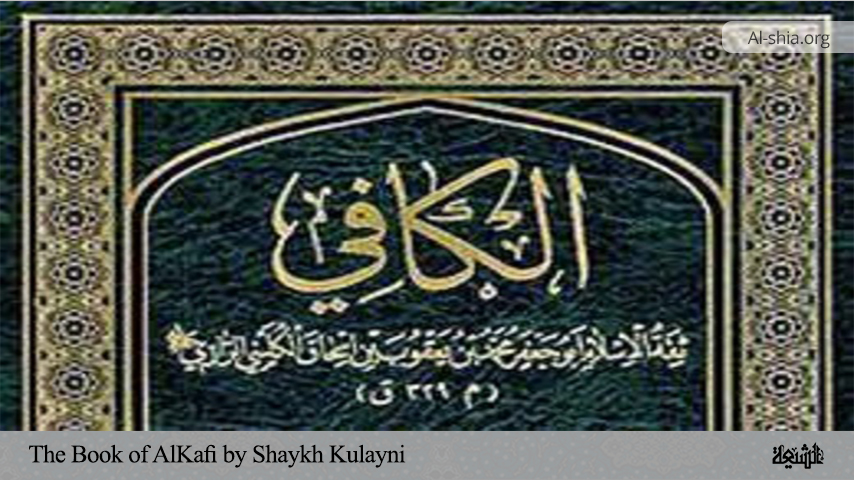In the upbringing of children, one of the important factors which have great influences on the personality of a child is food. In the article, we shall examine the influence of food on children.
The Role of Unlawful Food in a Newborn
The Prophet (s.a.w.) said: “O son of Mas’ud! Do not consume what is unlawful, do not wear what is unlawful, do not take an unlawful relationship, and do not disobey Allah, as indeed Allah the Exalted says to Iblis: “Instigate whomever of them you can with your voice; and rally against them your cavalry and your infantry, and share with them in wealth and children and make promises to them! But Satan promises them nothing but delusion.” (1) (2)
Tafsir al-’Ayyashi, narrating from Muhammad ibn Muslim who said: “I asked Imam al-Baqir (a.s.) about Satan’s share in His saying: “and share with them in wealth and children.”(3)
He (a.s.) said: “Anything that comes from unlawful wealth is the share of Satan.” He (a.s.) then said: “And he [Satan] stays with the man until he has intercourse, and the child will be from the sperm of Satan and the sperm of the man if his wealth is from the unlawful.”(4)
Tafsir al-’Ayyashi, narrating from Muhammad from Imam al-Baqir (a.s.) or Imam al-Sadiq (a.s.) who said: ‘The share of Satan is what is produced from unlawful wealth, and the child is born from the partnership of Satan.
He [Satan] will accompany the man until he has intercourse, and so his semen will be mixed with the man’s semen if the wealth consumed was unlawful. He said: “Both [their semen] will be mixed together.” And he said: “The child might be created from the semen of one, or it might be created from both.”(5)
Imam al-Sadiq (a.s.) said: “[The effects of] Unlawful income will be seen in one’s offspring.”(6)
The Role of the Father’s Food in his Child
Imam al-Sadiq (a.s.) said: “Whoever eats a quince before breakfast, his semen will be clean and his child will be good.”(7)
Tibb al-A’immah, narrating from Bukair ibn Muhammad who said: “I was in the presence of Abu ‘Abdullah al-Sadiq (a.s.) when someone said: “O son of the Messenger of Allah (s.a.w.)! [Sometimes] A child is born but he is rather foolish and weak.”
He (a.s.) said: “What has prevented you from eating Sawiq? (8) Both you and your wife should eat it, for it causes flesh to grow, the bone to strengthen and only the strong will be born from you.”(9)
Imam al-Kazim (a.s.) said: “He who eats egg, onion and [olive] oil will increase his sexual potency. He who eats meat mixed with eggs will result in his child’s bones being strong.”(10)
Al-Kafi, narrating from ‘Amr ibn Ibrahim from al-Khurasani(11) who said: “Eating a sweet pomegranate increases a man’s semen and makes the child beautiful.”(12)
The Role of a Pregnant Woman’s Food on the Foetus
The Prophet (s.a.w.) said: “Feed dates to a woman who is in her month of delivery, for her child will become patient and clean.”(13)
The Prophet (s.a.w.) said: “Feed frankincense to your pregnant women, for when a child is fed with frankincense while in its mother’s womb, its heart will be strengthened and its intellect will increase. If it is a male, he will become brave, and if it is female, her posteriors will grow large and it will be liked by her husband.”(14)
Imam al-Ridha (a.s.) said: “Give wet frankincense to your pregnant women, for if she caries a male in her womb, he will be born with a strong heart, be knowledgeable and brave; and if it is a female, she will beautiful, have good morals, her posteriors will be large and her husband will be pleased with her.”(15)
The Prophet (s.a.w.) said: “Give frankincense to your pregnant women, for it will increase in the child’s intellect.”(16)
The Prophet (s.a.w.) said: “There is no pregnant woman who eats melon with cheese without her child not being born with a beautiful face and good morals.”(17)
The Prophet (s.a.w.) said: “Give quince to your pregnant women, for it will make your children have good morals.”(18)
The Prophet (s.a.w.) said: “The smell of prophets is the scent of quince, the smell of Houris is the pleasant scent of the ‘As tree, the smell of angels is the scent of a rose, and the smell of my daughter Fatimah al-Zahra (a.s.) is the scent of quince, the ‘As tree and a rose. Allah did not send a prophet or a successor that did not have the smell of quince, so eat it and feed it to your pregnant women, for it makes your children beautiful.”(19)
Makarim al-Akhlaq, narrating from the Messenger of Allah (s.a.w.) who said: “Eat quince and give it to each other as a gift, for it brightens the eyesight and grows friendship in the heart, and feed it to your pregnant women, for it makes your children beautiful.”
In another tradition: “It [quince] will make your children have good morals.”(20)
Imam al-Sadiq (a.s.) said, while looking at a handsome boy: “The father of this boy must have eaten quince.”(21)
Imam al-Sadiq (a.s.) said: “Eat endive, for it increases a man’s semen and makes a child handsome. Its nature is hot, it is a laxative and it increases the masculinity of a child.” (22)
Al-Kafi, narrating from Sharhabil ibn Muslim who said: “He (a.s.) said concerning a pregnant woman: “She should eat quince, for it will give a nicer scent to her child and a better colour.”(23)
The Role of a Mother’s Food on the Newborn
Imam ‘Ali (a.s.) said: “The Prophet of Allah said: “The first thing a parturient should eat is ripe dates, for Allah, the Exalted told Mary: “Shake the trunk of the palm tree, freshly picked dates will drop upon you.”(24)
Some asked: “O Messenger of Allah! If it is not the season of fresh ripe dates, what must she do?”
He said: “Then seven dates from the dates of Medina; if that is not found, then seven dates from your own cities, for Allah (s.w.t.) says: “By My honour, My glory, My greatness and the highness of My position, if a parturient was to eat ripe dates on the day she delivers her child, boy or girl, will be forbearing.”(25)
Imam ‘Ali (a.s.) said: “The best of your dates is the Barni. (26) Feed it to women while they are in their post-natal period so your children will become wise.”(27)
Imam al-Sadiq (a.s.) said: “Feed Barni to your women during their post-natal period and your children will turn out forbearing.”(28)
NOTES:
____________________
1. The Qur’an, 17:64.
2. Makarim al-Akhlaq, vol. 2, p. 354, h. 2660, narrating from ‘Abdullah ibn Mas’ud. Bihar al-Anwar, vol. 77, p. 105, h. 1.
3. The Qur’an, 17:64.
4. Tafsir al-’Ayyashi, vol. 2, p. 299, h. 102. Bihar al-Anwar, vol. 104, p. 136, h. 5.
5. Tafsir al-’Ayyashi, vol. 2, p. 300, h. 108. Bihar al-Anwar, vol. 103, p. 294, h. 48.
6. al-Kafi, vol. 5, p. 124, h. 4, narrating from ‘Ubayd ibn Zurarah.
7. al-Kafi, vol. 6, p. 357, h. 3. al-Mahasin, vol. 2, p. 365, h. 2273.
8. A dish made from wheat flour and roasted barley.
9. Tibb al-A’immah, by Ibn Basaam, p. 88. Bihar al-Anwar, vol. 104, p. 79, h. 4.
10. Makarim al-Akhlaq, vol. 1, p. 425, h. 1451. Bihar al-Anwar, vol. 104, p. 84, h. 41.
11. Apparently referring to Imam al-Ridha (a.s.), however, the narrator of this tradition is ‘Amr ibn Ibrahim who is a companion of Imam al-Sadiq (a.s.), so it is far from possible that he has narrated this from Imam al-Ridha (a.s.). [This footnote is mentioned in the source of the tradition].
12. al-Kafi, vol. 6, p. 355, h. 17. Bihar al-Anwar, vol. 66, p. 163, h. 46 .
13. Makarim al-Akhlaq, vol. 1, p. 365, h. 1202. Bihar al-Anwar, vol. 66, p. 141, h. 58.
14. al-Kafi, vol. 6, p. 23, h. 6, narrating from Abu Ziyad from Imam al-Hasan.
15. al-Kafi, vol. 6, p. 23, h. 7. Tahdhib al-Ahkam, vol. 7, p. 440, h. 1758. Both narrating from Muhammad ibn Sinan. Makarim al-Akhlaq, vol. 1, p. 424, h. 1443.
16. Makarim al-Akhlaq, vol. 1, p. 423, h. 1439. Bihar al-Anwar, vol. 66, p. 444, h. 8. al-Firdaws, vol. 1, p. 101, h. 331, narrating from Ibn ‘Umar.
17. Tibb al-Nabi, p. 28. Bihar al-Anwar, vol. 62, p. 299.
18. al-Da’wat, p. 151, h. 405. Makarim al-Akhlaq, vol. 1, p. 372, h. 1230. Bihar al-Anwar, vol. 66, p. 177, h. 37.
19. Jami’ al-Ahadith, p. 82. Bihar al-Anwar, vol. 66, p. 177, h. 39, narrating from al-Imamah wa al-Tabsirah.
20. Makarim al-Akhlaq, vol. 1, p. 372, h. 1230. Bihar al-Anwar, vol. 66, p. 176, h. 37.
21. al-Kafi, vol. 6, p. 22, h. 2. al-Mahasin, vol. 2, p. 365, h. 2274. Both narrating from Muhammad ibn Muslim. Makarim al-Akhlaq, vol. 1, p. 373, h. 1241.
22. al-Kafi, vol. 6, p. 363, h. 6. al-Mahasin, vol. 2, p. 313, h. 2047. Makarim al-Akhlaq, vol. 1, p. 385, h. 1295.
23. al-Kafi, vol. 6, p. 22, h. 1. Tahdhib al-Ahkam, vol. 7, p. 439, h. 1755.
24. Qur’an, 19:25.
25. al-Kafi, vol. 6, p. 22, h. 4. Tahdhib al-Ahkam, vol. 7, p. 440, h. 1757, with ‘wise’ instead of ‘forbearing’. al-Mahasin, vol. 2, p. 346, h. 2194.
26. A high-quality sweet red-yellowish date.
27. Tahdhib al-Ahkam, vol. 7, p. 440, h. 20. al-Kafi, vol. 6, p. 22, h. 3, with ‘virtuous and forbearing’ instead of ‘wise’. Both narrating from Zurarah from Imam al-Sadiq (a.s.).
28. al-Kafi, vol. 6, p. 22, h. 5. al-Mahasin, vol. 2, p. 345, h. 2190. Both narrating from Salih ibn ‘Aqabah. Makarim al-Akhlaq, vol. 1, p. 366, h. 1206, with will become beautiful’ instead of ‘will turn out forbearing’.






